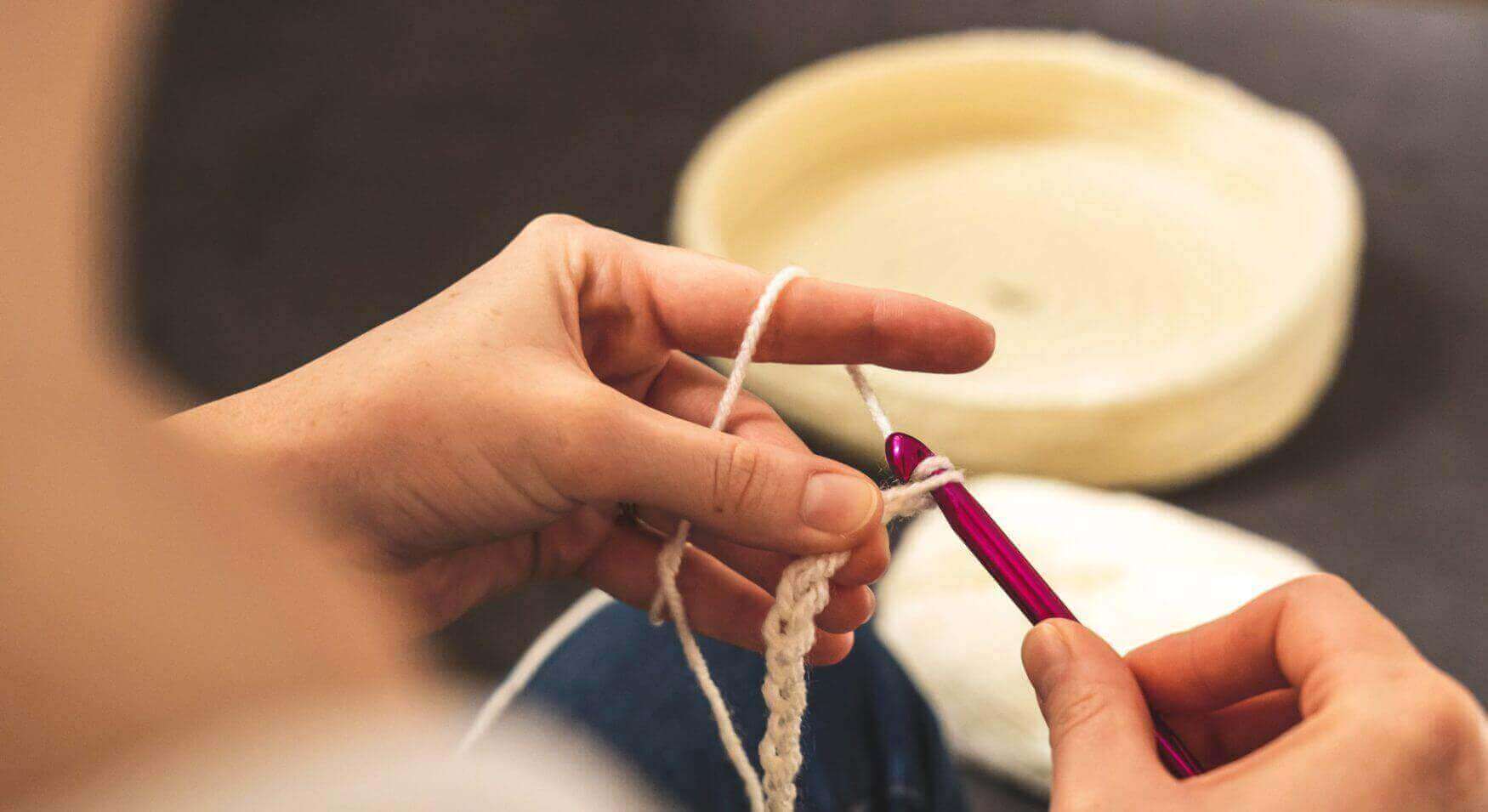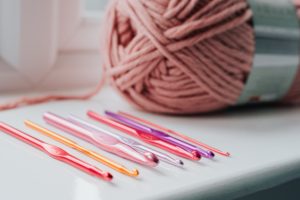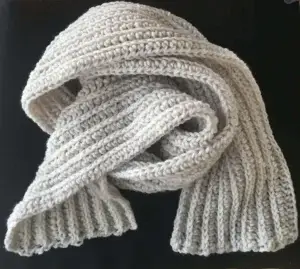Is Crochet Easy? A Beginner’s Guide
Crochet sometimes has a reputation as a difficult and time-consuming hobby, but the truth is, it’s much easier than people think. Many people have been turned off by the idea of crochet because they believe it requires a lot of skill and patience. However, the reality is that with a little bit of practice, anyone can learn to crochet. It’s a versatile craft that can be used to create anything from clothing, toys or home decor, and it’s a great way to relax and unwind.
If you’re interested in picking up a new hobby, crochet may be just the thing for you. While it may seem daunting at first, learning to crochet is actually quite easy with the right guidance. Crochet is a teachable and learnable skill! This beginner’s guide will provide you with the basics and tips to get started on your crochet journey.
Whether you’re a complete beginner or have dabbled in crochet before, we’re confident that by the end of this article, you’ll be excited to pick up a hook and start creating.
What do you need to know to learn how to crochet?
Crochet is a process of creating fabric by interlocking loops of yarn or thread using a crochet hook. The basic stitches in crochet are the chain stitch, single crochet, double crochet, and triple crochet. These stitches are used to create a variety of patterns and textures.
To crochet you must learn how to:
- Hold your hook and yarn while applying the right amount of tension
- Create stitches
- Complete the finishing details of your project
- Read patterns and charts
You can tackle learning these basic skills one at a time, by working on practice pieces and easy projects.
How long does it take to master crochet?
It will take a little time to learn the skills that you need, specifically the fine motor skills you need to be able to hold your hook and yarn and to create stitches. Like any skill, it takes practice. Twenty minutes a day of practicing will advance your skills fairly quickly.
What materials do you need to start crocheting?
To start crocheting, you must have a crochet hook and yarn. For beginners, a size 5 mm or 6 mm hook and medium weight yarn (worsted, or number 4) are good choices.
Other materials you may want to start with are scissors, a yarn needle or tapestry needle, and a ruler or measuring tape.
Crochet is a good hobby for beginners
It’s easy to undo stitches and try again! And crochet “works up quickly”, meaning that you can create a project in a relatively short amount of time to feel that sense of accomplishment.
It is also possible to create crocheted items with only simple and easy stitches. Many crocheted objects are created by using only basic single or double crochet stitches. Learning complicated stitches and patterns is an option, but not necessary for making satisfying and beautiful projects.
Crochet is inexpensive to get started in as a beginner compared to many other crafts. There are budget friendly hooks and yarn, and free patterns available all over the internet and in your local public library.
Crochet is also easy to learn as an adult. Don’t be put off if you didn’t learn to crochet as a child or if you don’t have experience in other needle crafts. Many crocheters took up the craft as adults and get great enjoyment from a satisfying and absorbing hobby.
Crochet is space saving and takes up very little room – no need for a dedicated craft room! Anyone who is short on space can crochet from a small basket or project bag. Fitting a crochet project into a bag means that crochet is the ultimate portable craft. Take your yarn and hook with you anywhere where you will have extra time and you can practice and create on the go.
The many benefits of crochet
Crochet is a great way to relax and unwind. The repetitive motions of crocheting can be meditative and calming, making it a great stress-reliever.
Crochet is also a great way to exercise your brain. Following patterns and creating intricate designs requires focus and concentration, which can help improve cognitive function. Additionally, crochet can help improve fine motor skills and hand-eye coordination.
Lastly, crochet is a rewarding hobby. There’s nothing quite like the feeling of finishing a project and being able to say, “I made this!” Whether you’re creating something for yourself or as a gift for someone else, crochet allows you to express your creativity and make something truly unique.
There are many easily available resources for learning how to crochet
Today, it is easier than ever to learn how to crochet.
The proliferation of information that the internet and social media have made available in the 21st century is an enormous benefit to anyone who wants to learn a new skill. You can learn almost anything from home, and that includes both beginner and advanced crochet techniques and projects.
There are websites and YouTube channels dedicated to teaching crochet technique. And don’t forget books, magazines and DVDs (the public library is a great resource for this).
You can also get instruction in person! More than ever, you can find crochet classes in both your local yarn store or big box craft supply stores. Look to social media to find meetups where knitters and crocheters can get together in the community.
Read these articles for a quick start to crocheting: How to Crochet: A Guide for Complete Beginners and Best Crochet Resources for Beginners. And check out the rest of the Tips and Techniques.
Next, explore some of these resources:
The following affiliate links are all resources that I have used myself and recommend. If you buy anything through these links, I may receive a small commission at no extra cost to you. Thank you for you support!
Craftsy is an excellent resource for learning how to crochet, for everyone from the complete beginner to more experienced crafters. Get started learning to crochet with step by step video instruction.
CreativeBug is another great resource for video instruction.
The Crochet Answer Book: Edie Eckman’s classic Q&A reference book has been updated with helpful answers to even more of your burning crochet questions. Covers everything from beginning basics like yarn styles, stitch types, and necessary tools to detailed outlines of more advanced techniques.
The Crocheter’s Skill-Building Workshop by Dora Ohrenstein. This fun guide includes more than 70 stitch-along swatches that teach specific crochet techniques and five projects — a hat, shawl, neck warmer, bag, and scarf — that put your new skills to use.
Hooks, yarn and other tools are available at WeCrochet and Furls.
Tips and tricks for getting started
If you’re new to crochet, it can be overwhelming to know where to start. Here are some tips to help you get started:
– Start with a simple project: Choose a project that uses basic stitches and doesn’t require a lot of shaping or color changes. A simple scarf or dishcloth is a great place to start.
– Practice, practice, practice: The more you practice, the easier crochet will become. Don’t get discouraged if your first few projects don’t turn out perfectly. Keep at it, and you’ll improve with time.
– Use the right tools: Invest in a good quality crochet hook and yarn. This will make the process much easier and more enjoyable.
FAQ’s
Is crochet easier than knitting?
Crochet is easier than knitting in some ways. In crochet, it is easier to undo stitches and fix a mistake, since each stitch is completed one at a time, whereas in knitting, each row of stitches is held on the needles and every stitch is interlocked. Making a mistake in knitting that is more than a few stitches back is more time consuming and difficult.
Crochet is a fun and rewarding hobby that anyone can learn. While there are certainly challenges to overcome, with practice and patience, anyone can become a skilled crocheter. Whether you’re looking for a way to relax and unwind, exercise your brain, or express your creativity, crochet has something to offer. So why not give it a try? You never know, you might just discover a new passion.



